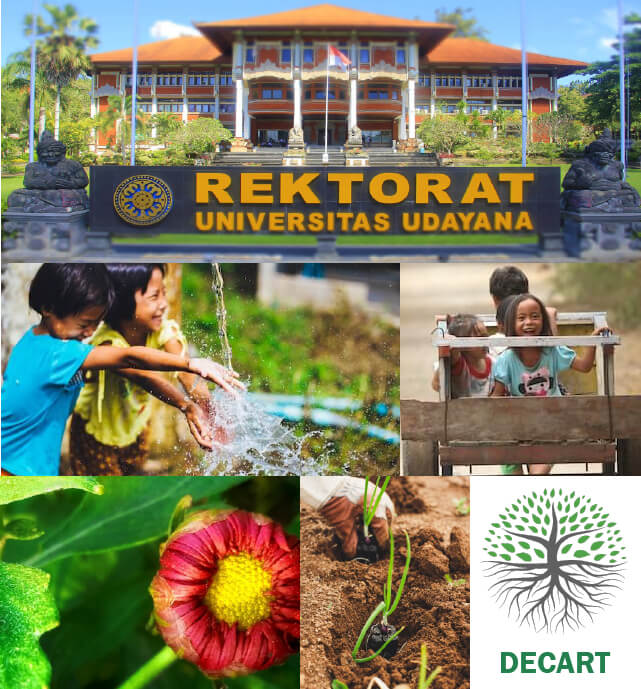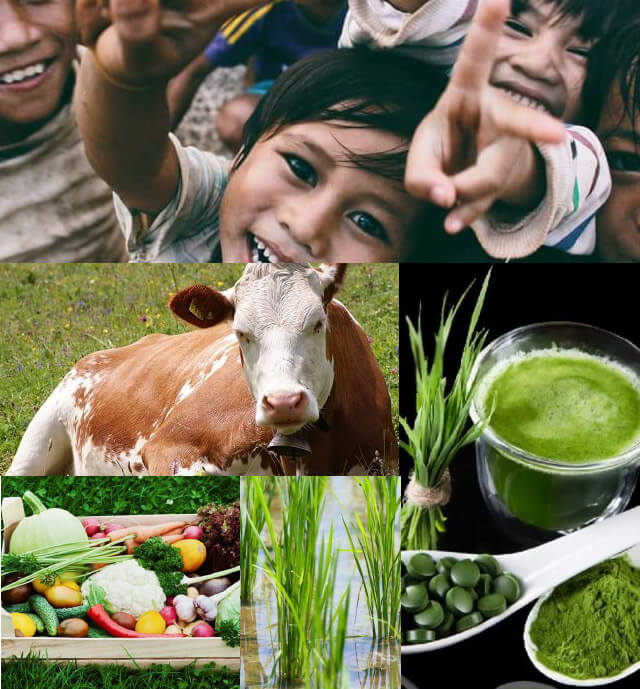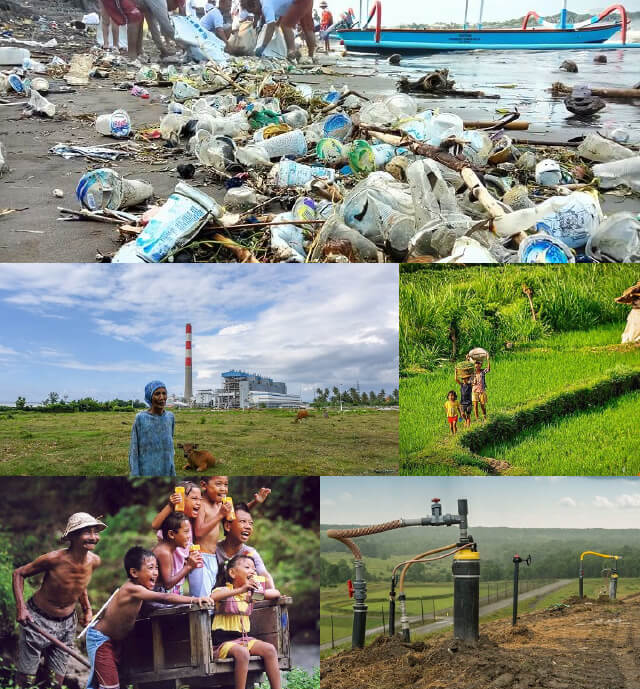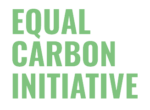Active projects of the Equal Carbon Initiative

Project 1. Power Production in Bali, Indonesia
The project is intended for 20 Ha of rice paddies of Udayana University Agriculture School in Bali, Indonesia. Rice paddies in their “fallow” phase (that is without any damage to rice crop) are transformed into photobioreactors “Amphor paddy” for the cultivation of unicellular alga Chlorella in natural light conditions. CO2 capture and storage method at rice paddies in the chlorella cultivation process is protected by patent.
CO2 emission reduction due to absorption by chlorella algae cultivated at rice paddies and replacement of coal by chlorella derived biomethane in power production in Bali, Indonesia
Project mission
- Combating global climate change
- Compensation of natgas shortage by replacing it with plant derived biomethane
- Rice yield increase doe to soil algolization
Solutions
- Photobioreactor Amphor paddy to cultivate unicellular alga chlorella, sourced by natural light in natural conditions of rice paddies
- Exhaust gas cleaning system and СО2 disposal
Project expansion
- Project expansion – conversion to biomethane firing of all coal and diesel fired Bali power stations
Project participants
- Amphor (Slovenia), implementation, management, early stage financing, on site construction, chlorella products marketing
- Equal Carbon Initiative (Dubai) – Investors
- Strategic partner and investor: DecarT (Dubai)
- Municipal partner: Bali (Indonesia) province authority
- Scientific partner: Udayana University Agriculture School, Indonesia
Project
- Investment outlay: US$12 million
- Investment stage tenor: 3 year (2023-2025)
- Operational stage: 25 years
- Project is self sustaining. CUs are additional income source.
Cus obtained in the project
- 20,3 thousand units annually, 203 thousand units in 10 years, 507,5 thousand units in 25 years
CU obtained in project expansion
- 13,4 million units annually, 134 million units in 10 years, 335 million units in 25 years

Project 2. Plant Protein of Algae Chlorella and Decrease of Cattle herd in Indonesia
Reducing GHG emissions by replacing animal protein with plant protein of Chlorella alga and prevention, on this basis, of annual increase in the number of cattle in Indonesia.
Project mission
- Combating global climate change
- Food shortage fighting
- Good plant protein production
- Rice yield increase due to soil algolization
Solutions
- Photobioreactor Amphor paddy to cultivate unicellular alga chlorella, sourced by natural light in natural conditions of rice paddies
- Biowaste to chlorella food conversion system
- Exhaust gas cleaning and СО2 disposal system
- Chlorella biomass, which contains 4 thousand tons of protein is produced in the amount of 6.6 thousand tons per year on 20 hectares of rice paddies on the island of Bali. The use of this protein can reduce the growth of the cattle herd in Indonesia by 75 thousand heads per year, due to which GHG emissionsin CO2 equivalent can be reduced by 210 thousand tons per year
Project expansion
- Expansion of the Project – annual replacement of the entire increase in the number of cattle in Indonesia (500 thousand heads per year) and the entire import of cattle meat to this country with chlorella protein
Project participants
- Amphor (Slovenia), implementation, management, early stage financing, on site construction, chlorella products marketing
- Equal Carbon Initiative (Dubai) – Investor
- Strategic partner and investor: DecarT (Dubai), Indofood Company
- Governmental support – Bali Indonesia province authority, Ministry of Agriculture Indonesia
- Scientific partner: Udayana University Agriculture School, Indonesia
Project
- Investment outly: US$20 million
- Investment stage tenor 3 years (2023-2025)
- Operational stage: 25 years
- Project is self sustaining. CUs are additional income source.
Cus obtained in the project
- 210 thousand units annually, 2,1 million units 10 years, 5,25 million units 25 years
CU obtained in project expansion
- 2,9 million units annually, 29 million units 10 years, 72,5 million units 25 years

Project 3. Landfill Gas and Coal-Free Power Generation in Bali
The project to build a medium-sized power plant on the island of Bali (Indonesia), which runs on fuel from MSW, not only avoids landfill gas, but also prevents the construction of coal-fired power plants that emit large amounts of greenhouse gases.
Municipal solid waste (MSW) disposal for energy generation, prevention of landfill gas appearance, and coal free power generation in Bali, Indonesia
Project mission
- Combating global climate change
- Prevention of Landfill gas appearance
- Prevention of coal fired power plants construction, which generate a lot of GHG
Solutions
- One power unit with 6,5 MW capacity consumes 75 thousand tons of SRF, derived from 150 thousand tons of MSW . Gazification technology provides for 2 stage combustion of fuel, making a process ecological and effective. The project has been prepared for the specific conditions of the province of Bali, taking into account the rules for the application of energy tariffs (including the use of renewable energy sources), as well as taking into account electricity tariffs and procedures for the collection and disposal of municipalsolid waste.
Project expansion
- The expansion of the Project provides for the use of 90% of MSW produced in the province of Bali (1640 thousand tons) for the production of solid fuel for power plants. This will provide fuel for 7 power plants with a capacity of 6.5 MW each, with a total capacity of 45.5 MW. The construction of these plants will prevent GHG emissions in CO2e by 7.2 million tons per year. Reduction of power shortage in Bali and waste disposal.
Project participants
- Econergy GMBH (Switzerland)
- Equal Carbon Initiative (Dubai) – Investor
- Strategic partner and investor: DecarT (Dubai)
- Bali province authority, PLN group, Indonesia
Project
- Investment outlay: US$38 million
- Investment stage tenor 2 years (2023-2024)
- Operational stage: 25 years
- Project is self sustaining. CUs are additional income source.
Cus obtained in the project
- 1029,3 thousand units annually, 10,29 million units 10 years, 25,73 million units 25 years
CU obtained in project expansion
- 7,1 million units annually, 71 million units 10 years, 177,5 million units 25 years
